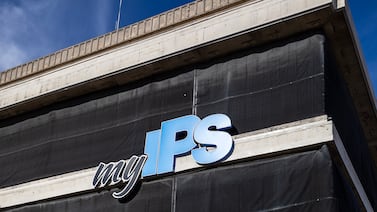Sign up for Chalkbeat Chicago’s free daily newsletter to keep up with the latest education news.
The Chicago Board of Education is considering changes to a policy allowing students to skip grades or take accelerated classes, which officials say will make access to accelerated coursework more equitable.
Among the changes would be the elimination of external testing fees and expanding eligibility qualifications to include students who score in the top 10% of their grade at their school. Currently, only students who are considered as “exceeding” state standards on the annual state test are flagged.
In CPS, accelerated placement means putting a child in a course or a grade that is higher than their grade level.
The changes, developed over the past eight months, were created with feedback from Local School Councils and school leaders, as well as “content area experts” and central office employees who focus on academics, according to CPS. If passed, the changes would be implemented this upcoming school year and will impact where kids are placed in the 2026-27 school year, according to the proposed changes.
The board is expected to vote on the proposed changes later this month.
In a statement, CPS spokesperson Quan Vu said CPS data show that significant disparities in grade and course acceleration persist, “with the majority of elementary acceleration applicants coming from the north side.”
CPS estimates that the changes will result in 1,500 more students having access to accelerated placement.
Accelerated math and reading and skipping an entire grade are options for students in grades 4-6, which they can pursue in multiple ways, including by being placed in a different classroom for that subject.
All eligible students would still “undergo additional screening … but they were previously excluded from even beginning the process,” CPS said.
Under the proposed changes, students looking to take accelerated math or reading would still need to perform in the 95th-99th percentile for any two consecutive district assessments in the subject in which the student wants to do accelerated work. Students must also have a 3.75 GPA per quarter for one year in the subject in question. The changes would get rid of a requirement to assess the student using the Iowa Acceleration Scale questionnaire, which helps schools consider students for academic acceleration.
For those seeking to skip a grade, the student must score in the 95th-99th percentile for two consecutive district tests in both reading and math. They must also have earned between a 3.7 and 4.0 GPAs in reading, math, science, and social studies in the previous year.
Once they’re eligible, students wanting an accelerated subject must score high enough on an additional test that is one grade level higher than in the subject they’re interested in. Those who want to skip a grade are evaluated by their school using the Iowa Acceleration Scale questionnaire, which CPS would keep in place for skipping grades. If they pass that, then they take a “variety of achievement tests” that are two grade levels higher than their current grade level and must score high enough on those.
The proposed changes would limit a practice known as “double acceleration” in the kindergarten entry grade. Currently, families can apply for both early entrance to kindergarten and selective enrollment elementary schools, which already have an accelerated curriculum.
The policy, if approved, would require families to choose either to accept acceleration at a non-selective school or to enroll in the selective program. The proposed changes would also allow families to appeal if their children are rejected for accelerated courses or skipping a grade.
Reema Amin is a reporter covering Chicago Public Schools. Contact Reema at ramin@chalkbeat.org.







